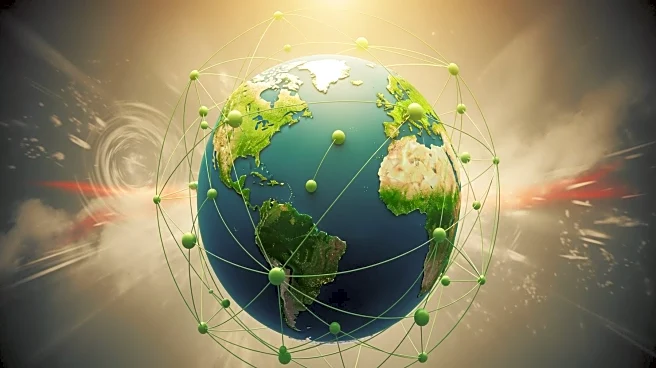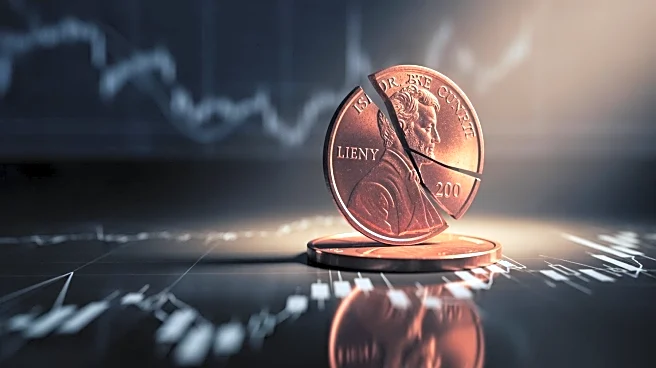What's Happening?
Governor Newsom is in the spotlight at a major climate conference, which President Trump decided to skip. The conference is marked by discussions on the impact of green technology from China, which is reshaping
global climate politics. Concurrently, escalating violence in the West Bank has drawn international attention, with Israel arresting four individuals following a Jewish extremist attack. The U.S. is also confronting Venezuela, with an aircraft carrier moving into the Caribbean. These developments highlight the complex interplay of environmental, political, and security issues on the global stage.
Why It's Important?
Governor Newsom's participation in the climate conference underscores the role of state leaders in international environmental policy, especially in the absence of federal leadership. The influx of green technology from China could shift the balance of power in global climate politics, affecting U.S. industries and international relations. The situation in the West Bank and U.S. actions in Venezuela reflect ongoing geopolitical tensions that could influence U.S. foreign policy and security strategies. These events may impact economic stakeholders, political leaders, and civil society groups, prompting discussions on the U.S.'s role in global affairs.
What's Next?
The climate conference may lead to new agreements or initiatives aimed at addressing global environmental challenges, with potential implications for U.S. policy and industry. The situation in the West Bank could result in increased diplomatic efforts or international interventions to address the violence. U.S. actions in Venezuela may lead to further geopolitical tensions or negotiations. Stakeholders, including political leaders, businesses, and civil society groups, will likely react to these developments, influencing future policy decisions and international relations.
Beyond the Headlines
The events highlight the interconnectedness of environmental, political, and security issues, prompting discussions on the ethical and strategic dimensions of U.S. involvement in global affairs. The role of state leaders in international policy may become more prominent, influencing domestic and international perceptions of U.S. leadership. The impact of green technology from China raises questions about the future of global economic competition and environmental sustainability.










